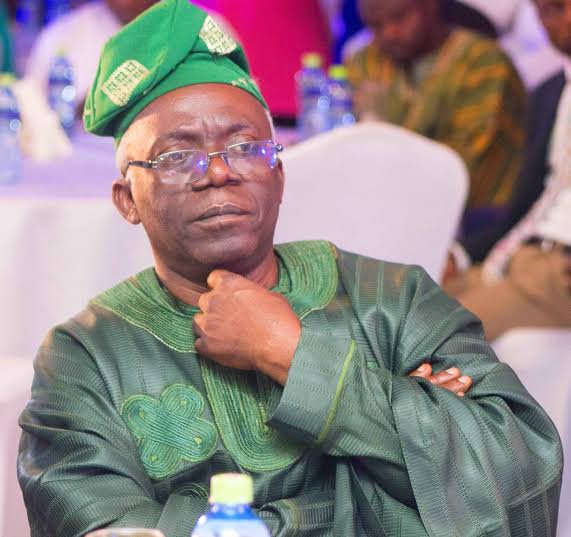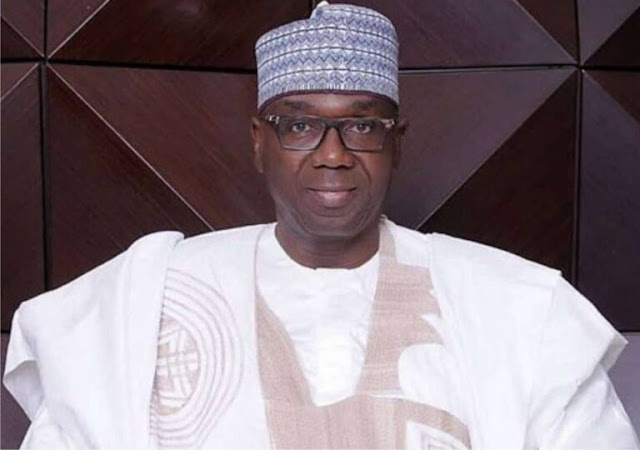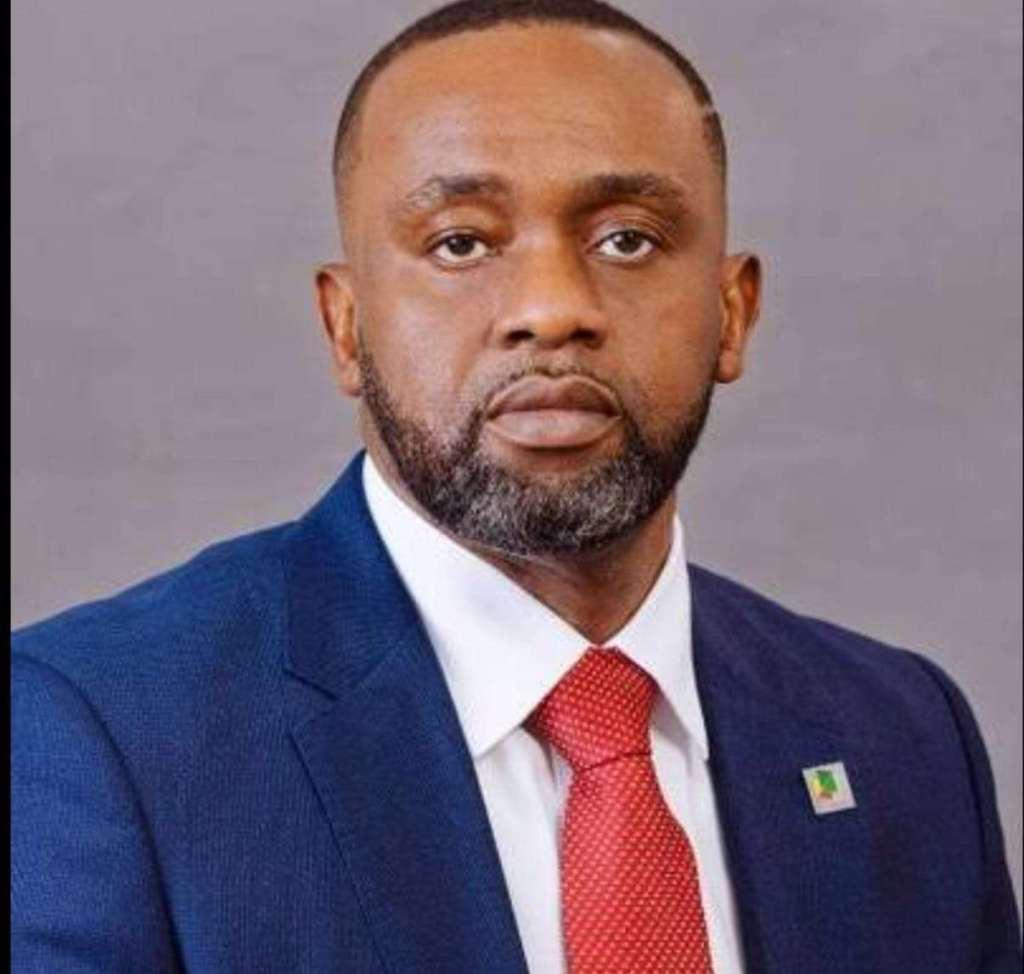LAGOS, Nigeria – August 25, 2025 – Renowned Senior Advocate of Nigeria (SAN) and human rights lawyer Femi Falana has called on the Economic and Financial Crimes Commission (EFCC) to transfer N32.7 billion and $445,000, recovered from officials of the Ministry of Humanitarian Affairs, Disaster Management and Social Development, to the National Social Investment Programme Agency (NSIPA) for proper utilization. As the chairman of the Alliance on Surviving Covid-19 and Beyond (ASCAB), Falana emphasized that these funds, originally allocated for the National Social Investment Programme (NSIP), are critical to addressing the needs of over 133 million Nigerians living in multidimensional poverty. He commended the EFCC’s recovery efforts but urged the agency to expedite the transfer of the funds to NSIPA and intensify efforts to recover an additional N20 billion still unaccounted for. Falana also called on federal, state, and local governments to increase funding for social protection initiatives, leveraging recent revenue gains to ensure meaningful impact. This report provides a comprehensive analysis of Falana’s appeal, the context of Nigeria’s social welfare challenges, the role of the NSIP, and the broader implications for governance, transparency, and poverty alleviation in Nigeria.
Falana’s Call for Action: Redirecting Recovered Funds
Femi Falana, a prominent human rights lawyer and Senior Advocate of Nigeria, has issued a compelling call to action, urging the Economic and Financial Crimes Commission (EFCC) to transfer N32.7 billion and $445,000 to the National Social Investment Programme Agency (NSIPA). These funds, recovered from officials of the Ministry of Humanitarian Affairs, Disaster Management and Social Development, were originally approved by the President for the National Social Investment Programme (NSIP), a flagship initiative aimed at alleviating poverty through interventions like school feeding, N-Power, conditional cash transfers, and small business support under the Government Enterprise and Empowerment Programme (GEEP).
Speaking as the chairman of the Alliance on Surviving Covid-19 and Beyond (ASCAB), Falana praised the EFCC for its efforts in recovering the funds but expressed concern over the delay in redirecting them to NSIPA. “We commend the EFCC and urge it to intensify efforts to recover the outstanding N20 billion still unaccounted for,” he said. “But more importantly, the recovered N32.7 billion and $445,000 should be transferred to the National Social Investment Programme Agency to help alleviate the hardship faced by over 133 million multi-dimensionally poor Nigerians.” His statement underscores the urgency of utilizing these funds to address Nigeria’s pressing socioeconomic challenges, particularly in a context of widespread poverty and economic hardship.
Falana’s call aligns with the EFCC’s stated policy of returning recovered funds to their intended purposes, ensuring that looted resources are redirected to benefit the public. The NSIP, launched in 2016, is designed to provide social safety nets for Nigeria’s most vulnerable populations, including children, unemployed youth, and small business owners. The recovered funds, if properly utilized, could significantly enhance the program’s impact, supporting millions of Nigerians struggling with poverty, hunger, and unemployment.
The National Social Investment Programme (NSIP): A Lifeline for the Vulnerable
The National Social Investment Programme (NSIP), established under the administration of former President Muhammadu Buhari, is one of Nigeria’s most ambitious social welfare initiatives. Managed by the National Social Investment Programme Agency (NSIPA), the program encompasses four key components:
School Feeding Programme: Provides free meals to primary school pupils to improve nutrition, increase school attendance, and boost local agriculture.
N-Power: Offers skills training and stipends to unemployed youth, enabling them to gain employment or start businesses.
Conditional Cash Transfer (CCT): Provides monthly stipends to poor and vulnerable households to reduce poverty and improve livelihoods.
Government Enterprise and Empowerment Programme (GEEP): Offers microcredit loans to small business owners, traders, and artisans to support economic empowerment.
The NSIP has reached millions of Nigerians since its inception, with over 12 million children benefiting from the school feeding program and 2 million youth trained through N-Power, according to NSIPA data. However, the program has faced challenges, including funding shortages, mismanagement, and corruption scandals, which have undermined its effectiveness. The misappropriation of N32.7 billion and $445,000 from the Ministry of Humanitarian Affairs, as highlighted by Falana, is a stark reminder of these issues.
Falana’s call for the transfer of recovered funds to NSIPA is critical to restoring the program’s integrity and impact. With over 133 million Nigerians living in multidimensional poverty—defined by lack of access to education, healthcare, and basic services, according to the 2022 Multidimensional Poverty Index (MPI)—the NSIP remains a vital tool for addressing inequality. The recovered funds could support the expansion of school feeding to additional schools, provide more youth with N-Power opportunities, and increase cash transfers to vulnerable households, directly addressing the hardships faced by millions.
The Context: Corruption and Poverty in Nigeria
Falana’s remarks come amid growing demands for transparency and accountability in the management of Nigeria’s social welfare funds, following several high-profile corruption scandals. The Ministry of Humanitarian Affairs, Disaster Management and Social Development has been at the center of controversy, with allegations of fraud and mismanagement involving senior officials. The EFCC’s recovery of N32.7 billion and $445,000 is a significant step toward addressing these issues, but the outstanding N20 billion underscores the scale of the problem.
Corruption remains a pervasive challenge in Nigeria, costing the country an estimated $18 billion annually, according to Transparency International. The misappropriation of social welfare funds is particularly damaging, as it deprives vulnerable populations of critical support. The 2023 scandal involving the diversion of NSIP funds sparked public outrage, prompting investigations and calls for reform. Falana’s advocacy, through ASCAB, reflects a broader push for accountability, ensuring that public resources are used for their intended purposes.
Nigeria’s socioeconomic context amplifies the urgency of Falana’s call. The National Bureau of Statistics (NBS) reported a headline inflation rate of 21.88% in July 2025, driven by a 22.74% food inflation rate, making basic necessities unaffordable for many. The naira’s 41.4% depreciation in 2024 has increased the cost of imported goods, while the Central Bank of Nigeria’s (CBN) 26.75% Monetary Policy Rate has raised borrowing costs, limiting economic opportunities. The World Bank’s estimate that 38.9% of Nigerians live below the poverty line, coupled with a 30% out-of-school rate among children (UNICEF, 2023) and a maternal mortality rate of 576 per 100,000 live births, highlights the scale of the crisis.
The NSIP, if adequately funded and managed, could mitigate these challenges by providing safety nets for the poor, creating jobs for youth, and supporting small businesses. Falana’s call for federal, state, and local governments to scale up contributions to the program reflects the need for a collective effort to address poverty. Recent increases in government revenue, driven by reforms in tax administration and oil production, provide an opportunity to bolster social protection initiatives, ensuring they have a meaningful impact rather than serving as token measures.
The Role of the EFCC and Anti-Corruption Efforts
The Economic and Financial Crimes Commission (EFCC), established in 2003, is Nigeria’s primary agency for combating economic and financial crimes, including corruption, money laundering, and fraud. Under the leadership of Chairman Ola Olukoyede, the EFCC has intensified efforts to recover looted funds and hold perpetrators accountable. The recovery of N32.7 billion and $445,000 from Ministry of Humanitarian Affairs officials is a testament to these efforts, demonstrating the agency’s capacity to tackle high-profile cases.
Falana’s commendation of the EFCC acknowledges its progress but also sets a high expectation for further action. The outstanding N20 billion, still unaccounted for, represents a significant challenge, requiring sustained investigations and collaboration with other agencies. The EFCC’s policy of returning recovered funds to their intended purposes, as highlighted by Falana, is critical to restoring public trust and ensuring that resources benefit the intended beneficiaries.
The transfer of the recovered funds to NSIPA would align with the EFCC’s mandate to promote transparency and accountability. By redirecting the N32.7 billion and $445,000 to the NSIP, the agency could enable the expansion of critical programs, directly impacting millions of Nigerians. Falana’s call for intensified efforts to recover the remaining N20 billion underscores the need for relentless pursuit of justice, ensuring that all misappropriated funds are accounted for.
Stakeholder Reactions
Falana’s appeal elicited widespread support from stakeholders across Nigeria. Civil society leader Dr. Amina Mohammed praised his advocacy, stating, “Femi Falana’s call for the transfer of recovered funds to NSIPA is a clarion call for justice. These funds belong to the poor, not corrupt officials.” The Nigerian Labour Congress (NLC), through its President Joe Ajaero, echoed this sentiment, urging the EFCC to act swiftly. “The recovered funds must reach the vulnerable Nigerians they were meant for,” Ajaero said.
Beneficiaries of the NSIP expressed hope that the funds would enhance the program’s impact. “The school feeding program has kept my children in school,” said Funmi Adewale, a mother in Lagos. “More funding could help more families like mine.” Youth groups, such as the National Youth Council of Nigeria, called for transparency in the fund transfer process. “We need to know how these funds are used,” said spokesperson Chinedu Okeke.
However, some stakeholders expressed skepticism about implementation. “The EFCC has done well, but corruption scandals keep recurring,” said anti-corruption activist Kolawole Oluwadare of SERAP. “We need systemic reforms to prevent future looting.” State governments, including Osun’s Governor Ademola Adeleke, pledged to support social protection initiatives, with Adeleke stating, “Osun will increase funding for NSIP to complement federal efforts.”
Implications for Nigeria’s Social Welfare and Governance
Falana’s call has significant implications for Nigeria’s social welfare system and governance. The transfer of recovered funds to NSIPA could revitalize the NSIP, enabling it to reach more beneficiaries and address multidimensional poverty. The school feeding program could expand to cover additional schools, particularly in rural areas, while N-Power could train more youth, reducing Nigeria’s 33% unemployment rate (NBS, 2024). The GEEP could provide more microcredit loans, empowering small businesses and boosting local economies.
From a governance perspective, the transfer would signal a commitment to transparency and accountability, restoring public trust in institutions. The EFCC’s success in recovering funds demonstrates the potential for anti-corruption efforts to deliver tangible results, but the delay in redirecting the funds highlights bureaucratic challenges that must be addressed. Falana’s advocacy, backed by ASCAB, amplifies the voices of civil society, ensuring that the government remains accountable to its citizens.
The call for increased government contributions to social protection aligns with Nigeria’s obligations under international frameworks like the Sustainable Development Goals (SDGs), particularly SDG 1 (No Poverty) and SDG 2 (Zero Hunger). By leveraging recent revenue gains, such as the $2.2 billion increase in oil revenue reported by the Nigerian National Petroleum Corporation (NNPC) in 2024, the government can scale up social programs, reducing inequality and fostering inclusive growth.
Challenges and Opportunities
The initiative faces several challenges:
Bureaucratic Delays: Slow transfer of funds to NSIPA could undermine the program’s impact, requiring streamlined processes.
Corruption Risks: Persistent corruption in the social welfare sector necessitates robust oversight mechanisms.
Economic Pressures: Inflation (21.88%) and naira depreciation (41.4%) strain household budgets, increasing the demand for social support.
Funding Gaps: Limited government revenue could hinder efforts to scale up social protection programs.
Opportunities include enhanced poverty alleviation, job creation through N-Power and GEEP, and increased public trust in governance. The transfer of funds could also attract international support from organizations like the World Bank, which has funded NSIP initiatives in the past.
Policy Recommendations
To maximize the impact of Falana’s call, the following recommendations are proposed:
Expedite Fund Transfer: The EFCC should prioritize the transfer of N32.7 billion and $445,000 to NSIPA, ensuring transparency.
Intensify Recovery Efforts: Accelerate investigations to recover the remaining N20 billion, holding perpetrators accountable.
Scale Up NSIP Funding: Federal, state, and local governments should increase allocations to social protection, leveraging revenue gains.
Enhance Oversight: Establish independent monitoring mechanisms to prevent mismanagement of NSIP funds.
Promote Public Awareness: Launch campaigns to educate citizens about NSIP benefits and anti-corruption efforts.
Conclusion
Femi Falana’s call for the EFCC to transfer N32.7 billion and $445,000 to NSIPA is a critical step toward addressing Nigeria’s poverty crisis and restoring trust in governance. The recovered funds, originally meant for the NSIP, could transform the lives of over 133 million poor Nigerians by expanding school feeding, N-Power, and GEEP. In a context of 21.88% inflation, corruption scandals, and social challenges, Falana’s advocacy underscores the need for transparency and accountability. By expediting the fund transfer, intensifying anti-corruption efforts, and scaling up social protection, Nigeria can leverage this opportunity to foster inclusive growth and build a more equitable future.






